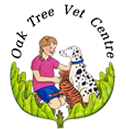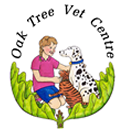Nurse Consultations
The Nursing Team
” ….above all, my constant endeavour will be to ensure the health and welfare of animals committed to my care.”
Abstract from the RCVS Registered Veterinary Nurse Declaration
We are fortunate to have the support of six fully qualified and registered Veterinary Nurses; Gill, Robyn, Aly and Gillian, Michelle and Gemma (Head Nurse & Practice Manager) who dedicate their lives to care for animals.
If you are ever concerned and would like to ask somebody about your pet’s health, then our nurses are the perfect people to ask.
Qualifying as a Veterinary Nurse involves attending College for two and a half years, whilst training in practice to gain practical experience. Three online exams, three written exams and 12 objective structured clinical examinations (OSCEs) must be obtained in order to attain Veterinary Nurse status. Once qualified, each nurse is then accepted on the register held by the Royal College of Veterinary Surgeons and entitled to use the legally protected title R.V.N.
The characteristic green tunic does not necessarily mean a member of staff has any qualifications whatsoever. All our nurses’s tunics show their qualification and each nurse displays, proudly, her nursing badge which depicts Saint Francis of Assisi, the patron saint of animals.
Roles undertaken by Veterinary Nurses at Oak Tree Vet Centre
Admitting patients for hospitalisation and surgery
Taking blood samples
Laboratory evaluations, running the laboratory analysers, microscope work and urine testing.
Setting up & maintaining I/V fluids (Drips)
Monitoring anaesthetics
Surgically preparing patients for theatre
Assisting the veterinary surgeon with operations
Taking radiographs and assisting with radiography
Dental scaling and polishing
Dressing wounds
Post operative patient monitoring
Discharging patients and providing post operative advice
In patient care
Hand rearing young
Special feeding requirements and techniques
Hydrotherapy
Laser therapy
Nurse Clinics
Adolescent Health Checks
Claw clipping and restorative grooming/clipping
Assisting in consulting room
Preparation of prescription medicines
Reception
Nurse Clinics
Nurse clinics are a great way to discuss your pet’s health with a veterinary nurse. They can offer you plenty of information about their health, lifestyle and diet that is not only very helpful but could minimise your pet’s health risks in the future.
Adolescent Health Checks From 6 months old
When your pet is between six and eight months of age you & your pet will be invited by the practice to our Adolescent Health Check. During this examination, the veterinary nurse will cover various topics including dental management, nutrition, parasite control, neutering, behaviour & training.
Dental examinations & demonstrations
Just like our own, our pet’s teeth need regular attention. There are many options from dental treats to tooth brushing and everything in between. The nurse can show you how to examine your pet’s mouth comfortably and how to brush your pet’s teeth, providing you with FREE dog or cat toothpaste samples as well as samples of tooth kind diets.
Weight reduction clinics
The aim of the clinic is to provide you with a real chance of significant weight loss for your pet. At the first consultation the nurse will assess your pet by taking weight and waistline measurements and decide on the best route to positive weight loss, setting a goal weight and target date. Regular recording of progress and fine tuning of the diet plan, will assist your pet reaching his or her target weight. Remember an estimated 50% of our dogs & cats today are clinically obese, so you are not alone!
Senior Health Checks
At this stage, more emphasis is placed on early detection of age related problems. Topics will include dental management & appropriate nutrition for an older animal. As part of this examination we will also check a urine specimen for conditions such as diabetes.
Impartial nutritional advice
Veterinary nurses are fully trained in the science and selection of general diets as well as those specifically formulated to assist with the management of numerous diseases.
Basic behaviour and training
Catching problem behaviours early and adopting corrective measures can really pay dividends. Whilst not seeking to replace the specialised behaviourist, our veterinary nurses can provide general advice that might save you needing to explore such an option.
Claw clipping, uncomplicated anal gland emptying and restorative grooming/clipping
These services attract a modest fee but provide a saving over coming for a veterinary consultation for these routine matters.

